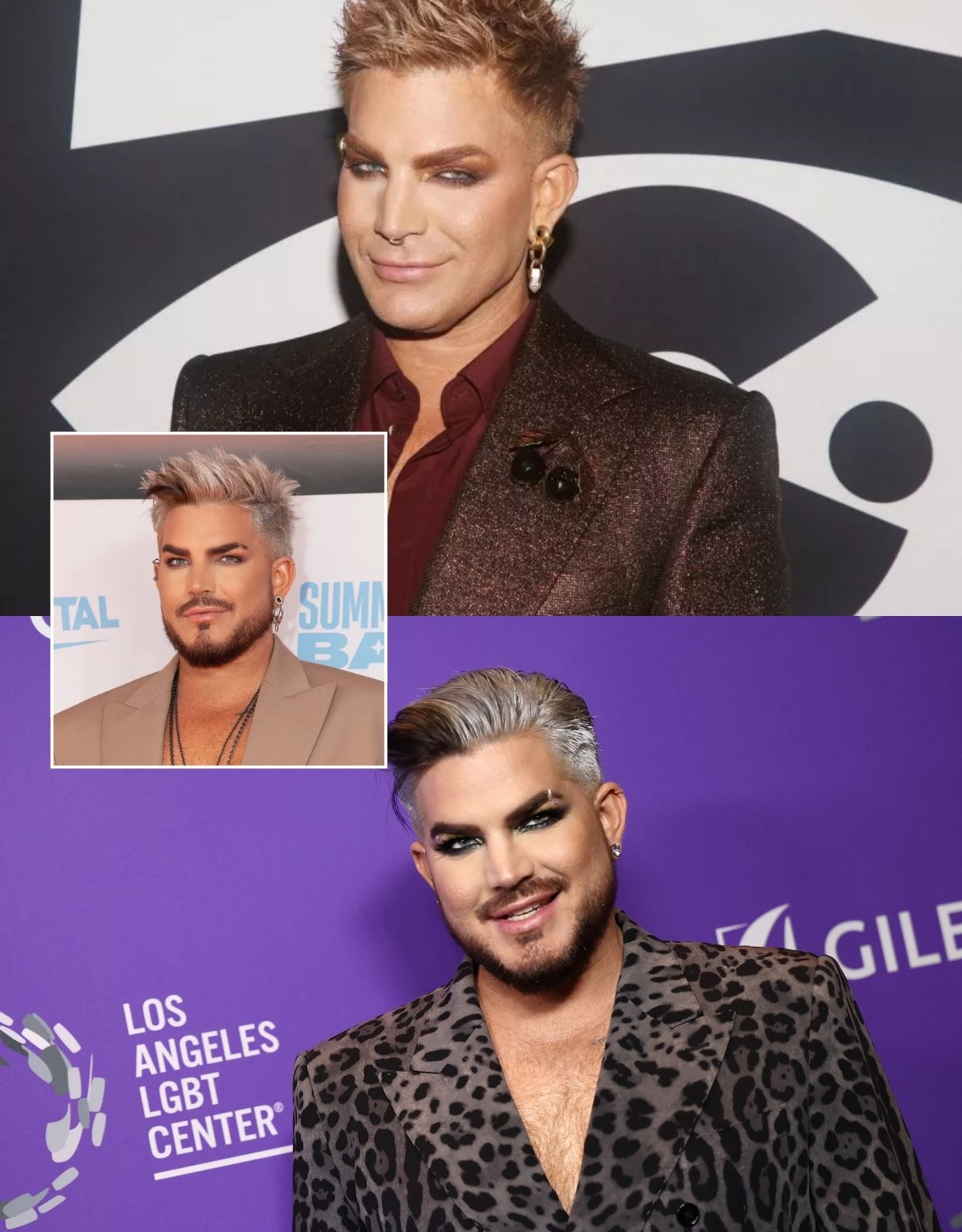The lights of the theater pulsed in time with the deep bassline, a heartbeat in the darkness. The air buzzed with anticipation, the crowd restless and electric. Then, like a thunderclap, Adam Lambert strode onto the stage, dressed in his signature glam-rock extravagance—dark sequins catching the light, eyeliner sharp enough to cut glass.
From the first note of Cabaret, he owned the room. His voice, soaring and sultry, wrapped around every lyric with a precision that sent shivers through the crowd. The performance was intoxicating—Adam didn’t just sing the song; he lived it, drawing the audience into his world.
But not everyone was there for the music.
Somewhere near the front, just beyond the glare of the spotlights, an audience member was making a scene. It started as a whisper—an unwelcome voice piercing through the melodies. Then, laughter—sharp, mocking. And then, louder words.
Adam heard them. Everyone did.
For a split second, his voice faltered—so brief, so controlled that only the most devoted fans might have noticed. But the spark in his eye changed, his spine stiffened.
Then, mid-song, in a move that sent a jolt through the entire venue, Adam stopped singing.
The band fell silent. The stage, once alive with sound and movement, stood still. The crowd—thousands of voices that had been singing along just moments before—suddenly held their breath.
Adam turned his head, slow and deliberate, his piercing gaze locked on the source of the disturbance.
The tension in the room was suffocating.
“Are you done?” Adam’s voice was calm—too calm. The kind of calm that meant the storm was just about to hit.
The person stammered, their voice lost in the stunned silence.
“You think you can come into my show,” Adam continued, stepping closer to the edge of the stage, his voice now razor-sharp, “and disrespect not only me but the people around you who actually came here to experience something magical?”
The crowd began to stir, murmurs rippling like waves on an unsettled ocean. Then, scattered cheers. Then applause.
Adam smirked, tilting his head. “You paid money to be here, honey. What exactly were you expecting? Because if you thought I was gonna let this slide—” He flicked his wrist dramatically— “you must be out of your damn mind.”
A roar erupted from the audience. Someone from security was already moving toward the troublemaker, but Adam raised a hand, stopping them.
“No, no—let’s give them a choice.” His eyes gleamed under the stage lights. “You can sit down, shut up, and learn what respect looks like… or you can leave.”
The challenge hung in the air.
A beat passed. Then another.
And then—movement. The audience member, face flushed, got up and slunk toward the exit. As soon as the door closed behind them, the theater exploded in cheers.
Adam grinned, rolling his shoulders as if shaking off the confrontation. He turned back to the microphone, flipped his hair dramatically, and in perfect, effortless timing, jumped right back into the song as if nothing had happened.
By the end of the performance, the energy in the room was wild, frenetic, unstoppable. The moment had been tense, unpredictable, but Adam Lambert had done what he did best—he commanded the stage, owned his power, and left no doubt that respect wasn’t optional.
And as the final note of Cabaret rang out, echoing through the theater, one thing was undeniable:
This was his show. And no one—absolutely no one—was going to ruin it.

